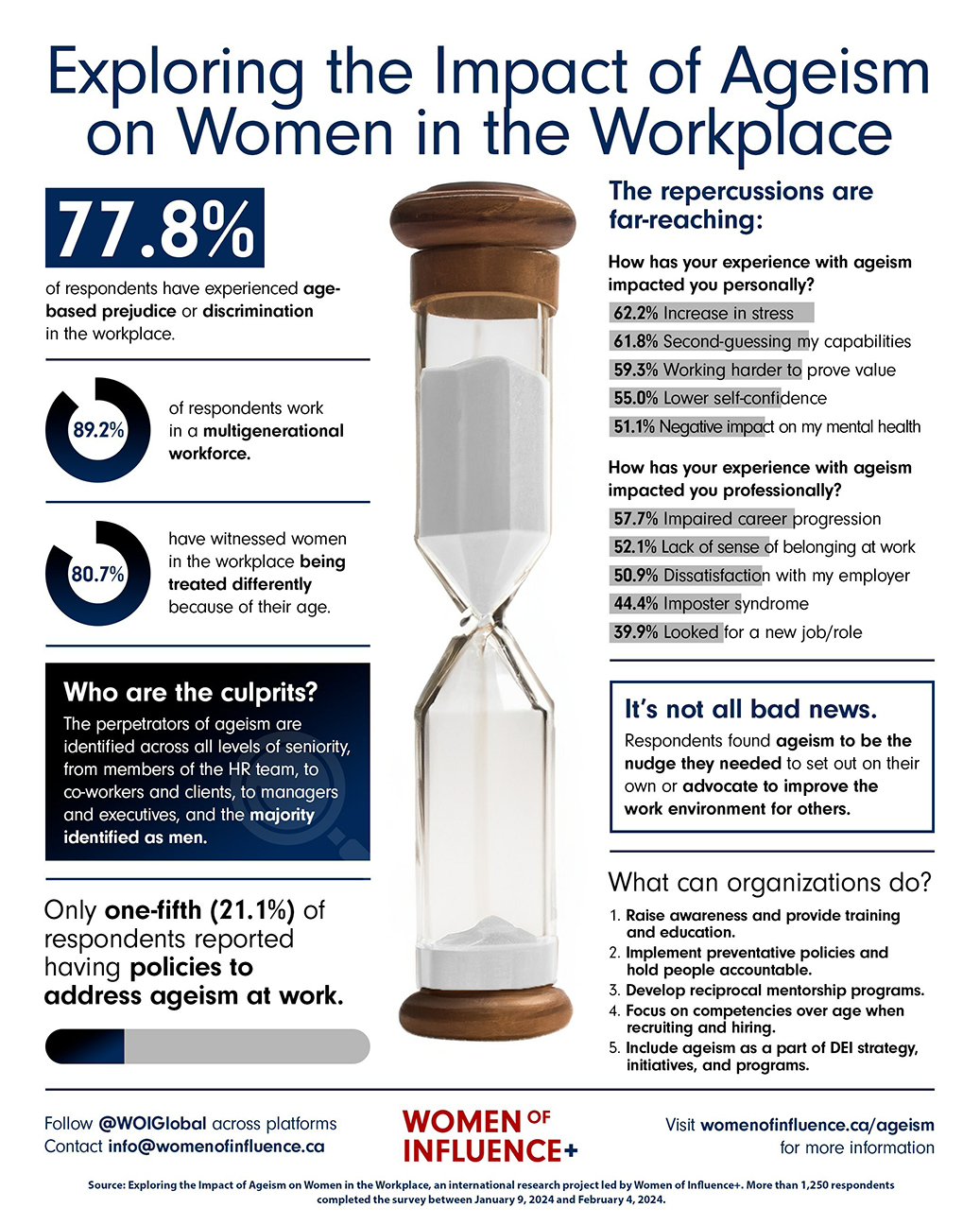In a February survey conducted by Houston-based Wizehire, only 22% of Americans said their workplaces offered diversity, equity, and inclusion (DEI) initiatives and programs.
For diverse hiring practices and inclusive social events, the figure was 16%.
The survey was part of Wizehire’s “2024 Women in Leadership Report,” which found that more women reported a lack of DEI initiatives than men, at 30% and 25%, respectively.
The full report detailed the current, ongoing challenges for women in leadership and said 33% of Americans surveyed believe balancing work and family responsibilities is the biggest obstacle.
“Hostile work environments were a distant second, split evenly between men and women,” the report said.
“Businesses hold the power to create more equitable workspaces where everyone has the opportunity to excel, boosting both business and well-being,” said Carmen Bryant, vice president of marketing at Wizehire.
Toronto-based Women of Influence+, a global organization promoting gender equity in the workplace, released a report in February titled “Exploring the Impact of Ageism on Women in the Workplace.”
The organization surveyed more than 1,250 women across 46 countries throughout January and February.
From that group, 77.8% of women said they have encountered age-related discrimination in their careers, citing ageism as a “critical yet often overlooked barrier to professional growth.”
“Nearly 80% of women encountering ageism in the workplace is not just a statistic; it’s a clear indication that we are facing a pervasive and systemic issue,” said Dr. Rumeet Billan, CEO, Women of Influence+. “Our survey sheds light on the hidden barriers many self-identifying women face, that not only hinder their career progression but also impact their confidence and well-being.”
Not only are women experiencing ageism in their own careers, but they are also seeing it happen from the outside to the other women they know.
The report said 80.7% of women have witnessed other women in the workplace being treated differently because of their age, and 46.2% said it is an ongoing issue.
The survey also found that ageism was affecting women in all stages of their lives, as 40.7% of respondents said they experienced age-based discrimination within the first 10 years of their career, and 55.9% encountered ageism after 21 years in their career.
“I have never heard comments about male colleagues being too young or too old for their work,” said one respondent. “Women are either too young, too old, or may be in the age range of having children. All are viewed as negative.”
How does ageism show up and affect women in the workplace?
- 74.8% experienced age-based stereotypes and/or assumptions.
- 50.1% said they were shown a lack of respect from colleagues.
- 49% reported unfair treatment in promotion processes.
- 62.2% reported increased stress due to experiencing ageism.
- 61.8% reported second-guessing capabilities.
- 59.3% overcompensate or work harder to prove their worth.
- 55% said they experienced lower self-confidence as a result of age-based discrimination.
- 57.7% reported impaired career progression due to ageism.
- 52.1% reported a lack of sense of belonging at work due to ageism.
- 50.9% reported experiencing dissatisfaction with their employer due to ageism.
“The findings of our survey are a call to action — it’s time for systemic change,” Dr. Billan said. “We must collectively work towards creating environments where age does not define capability or limit opportunity. Our commitment at Women of Influence+ is to continue advocating for and supporting these necessary changes.”
Why is intersectionality important?
When discussing DEI, it is important to consider how any of the current issues affect employees belonging to more than one marginalized group.
“The impact of age intersects with other facets of a person’s identity, such as race, ability, and gender,” the Women of Influence+ report said. “Intersectionality can compound the negative effects of ageism, and respondents are noticing this in their workplaces. Almost 70% (69.2%) of respondents believe ageism disproportionately affects women.”
“Ageism is so intertwined with sexism, so it is hard to separate the two,” said one respondent.
“Ageism is proportionally much higher for racialized women,” another respondent said, “The perfect age in the workplace for a woman is a perpetual 34-years-old. But that’s too young to be in the C-suite or in a senior position. Women of color need to be older, but still look full of vitality.”
Women of Influence+’s 5 steps to combat ageism:
- Raise awareness and provide training and education.
- Implement preventative policies and hold people accountable.
- Develop reciprocal mentorship programs.
- Focus on competencies over age when recruiting and hiring.
- Include ageism as a part of DEI strategy, initiatives, and programs.

This article is an excerpt from the April 2024 issue of Supermarket Perimeter. You can read the entire DEI feature and more in the digital edition here.

